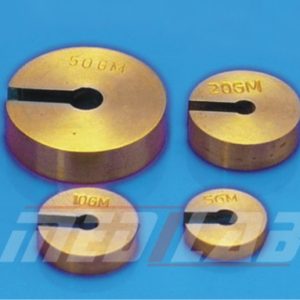Description
A potentiometer is a laboratory apparatus that is used to measure the potential difference (voltage) between two points in an electric circuit. It consists of a resistive element (a long wire or track), a sliding contact (also known as a wiper) that can move along the resistive element, and a fixed contact at each end of the resistive element.
When a voltage is applied to the two fixed contacts, a voltage gradient is created along the resistive element. By moving the sliding contact along the resistive element, the voltage at any point in the circuit can be measured relative to the voltage at the fixed contacts.
Potentiometers are often used in laboratory settings to measure the voltage output of a power supply, to calibrate other instruments such as voltmeters and ammeters, and to conduct experiments involving electrical circuits.







